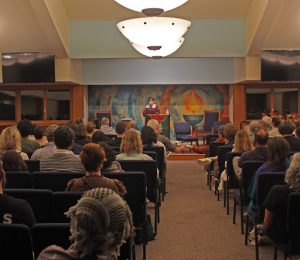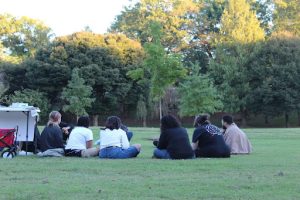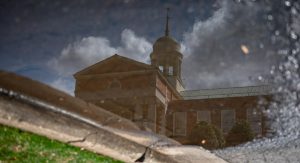Editorial: AP course underlies danger of academic censorship
Debates around curricula should be governed by scholarship and good faith
A.P. African American Studies, and education as a whole, are too important to be decided by politicians, the Editorial Committee writes.
February 13, 2023
Should curricula be determined by who prevails in the academic sphere or who prevails in that year’s election?
In the case of A.P. African American Studies, which is currently slated for a 60-school pilot this school year and a 200-school pilot next academic year, electoral victories have superseded scholastic ones.
According to Dr. Corey D. B. Walker, Wake Forest professor of the humanities, interim dean of divinity and director of the African American Studies program, more than 300 scholars worked with the College Board to develop a curriculum for the course. Walker was among them, and he noted that there were several key debates in discussions around the framing of the course, including how to prepare high school teachers to teach it and how to make African American Studies accessible to the 15-18 year olds who would take it. An open letter signed by Walker and more than 800 of his colleagues in African American and Africana Studies notes that this process took years.
A funny thing happened to this academic collaboration on the way to the classroom, though. Florida officials, led by Gov. Ron DeSantis, told the College Board they would block the course because it “lacked educational value” and was “woke indoctrination.” The New York Times reported that Florida sent a list of its objections to the College Board in September. Per the Times, the draft curriculum that College Board released on Feb. 1 omitted all of the material that Florida found objectionable. The curriculum that emerged is watered-down and devoid of key concepts like intersectionality, queer theory, mass incarceration and the Black Lives Matter movement.
The arguments against Florida and DeSantis’ crusade are many and have appeared in numerous media outlets, including the Old Gold & Black. We will not rehash those arguments here except to note that we strongly disagree with the views of Florida’s government.
The Old Gold & Black instead directs its attention to the rise of censorship in education. Just last year, the University of North Carolina at Chapel Hill’s Board of Trustees caved to conservative pressure and refused to grant tenure to 1619 Project author and journalist Nikole Hannah-Jones, according to NC Policy Watch. In K-12 public schools, new laws in many states prohibit the teaching of “Critical Race Theory” (read: basic American history around race and racism, not a legal theory). As Wake Forest students, we are fortunate enough that the government does not have full control of our curriculum, but that is little comfort to us as citizens in a society that depends on the quality education of our peers.
This did not start nor will it end with A.P. African American Studies. Eventually, the Wake Forest faculty will have to decide whether it deems College Board’s curriculum acceptable enough to grant credits. The finalized curriculum and test, and thus, the vote, are years away. But the stifling of educators and scholars by a politically driven, invented culture war is an issue of the here and now, and it is incredibly dangerous.
Academia faces several serious questions and debates that will define education for generations to come. We encourage Wake Forest’s students, faculty and administrators to reject the incursion of politicians into academics and to advocate for the agency of scholars and students.
The Old Gold & Black’s editorial committee writes the paper’s weekly editorial. The above editorial expresses its opinions and the editorial voice of the paper. The committee is chaired by Online Managing Editor Aine Pierre and also comprises Opinion Editors Sophie Guymon and Shaila Prasad, Assistant Opinion Editor Lauren Carpenter and Staff Writers Ashlyn Segler and Hope Zhu. The content of all editorials is reviewed by the Executive Board of the Old Gold & Black before publication.













GN Norris • Mar 31, 2023 at 11:10 am
The outright political motivated version of “history” reveals the political nature of this “education.”
The full extent of the history of slavery is never taught, just the portion that denigrates the US and teaches our children to hate themselves and other people based on their skin color. ???
Congrats to DeSantis for rightfully protecting families from this cultural Marxist political movement.
Whit Jr. • Feb 14, 2023 at 4:42 pm
Confusion worse confounded. As these “progressive” propaganda curricula and fashions have infiltrated the schools I’ve noticed a linear increase in school shootings. Of course correlation is not necessarily causation. In any case, kudos to DeSantis for advocating in the best interest of abused, aggrieved, or possibly gender/sexually disoriented students and leaving them free to choose.